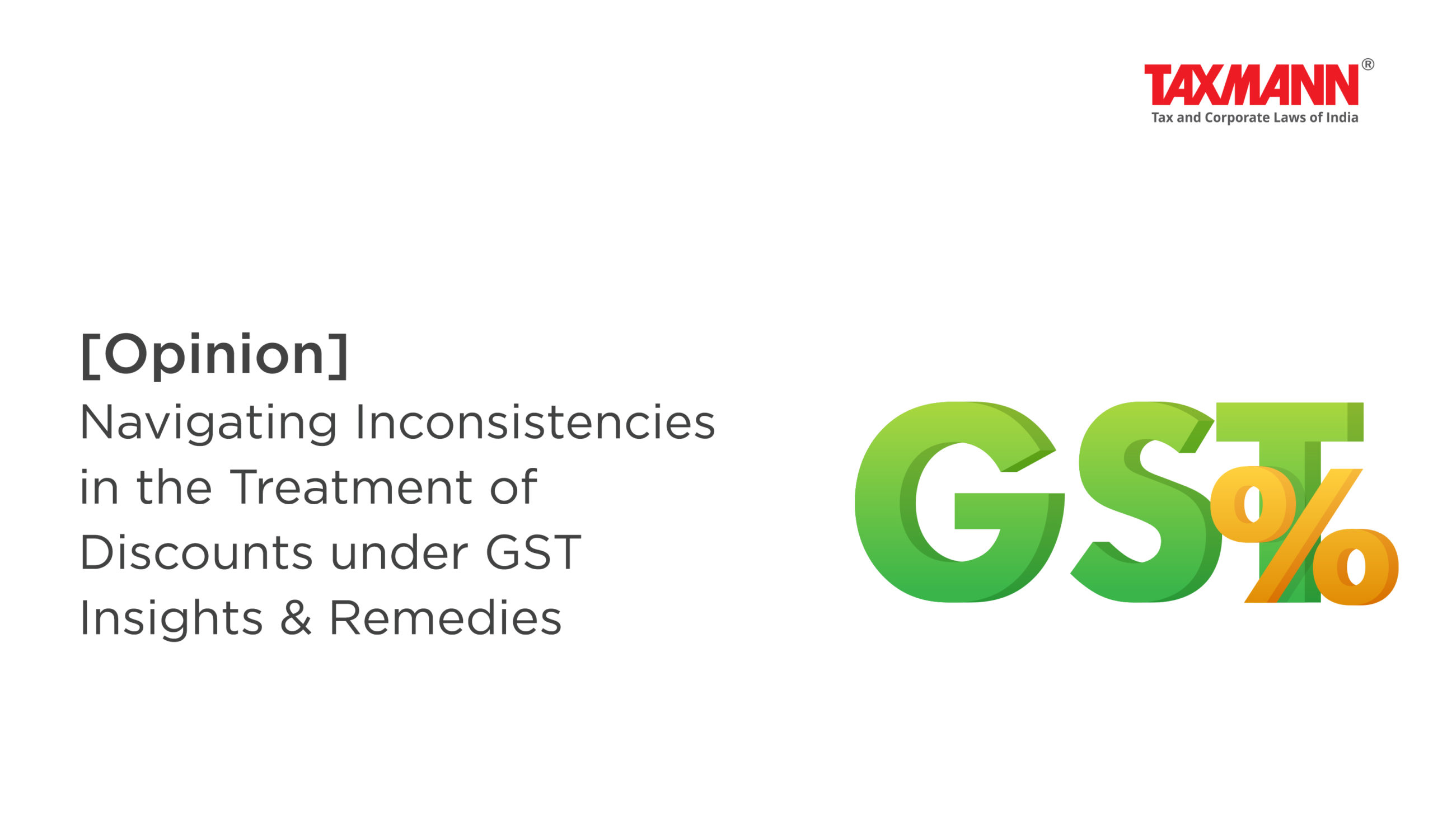[Opinion] Navigating Inconsistencies in the Treatment of Discounts under GST | Insights & Remedies
- Blog|News|GST & Customs|
- 2 Min Read
- By Taxmann
- |
- Last Updated on 30 May, 2023

Rajni Mehla – [2023] 150 taxmann.com 456 (Article)
1. Section 65 of the Central Goods and Services Tax (CGST) Act, 2017 deals with the provisions related to the audit conducted by the GST department. During the course of such audits, observations are made by the department, which may require taxpayers to make adjustments or rectifications in their GST returns as well as to pay the taxes.
2. One recurring observation made by the GST department during audits pertains to the treatment of discounts received by taxpayers from their suppliers. Discounts can take various forms, such as cash discounts, trade discounts etc.
3. The issue at hand arises from the differing stands taken by the GST department in various instances. In some cases, taxpayers are asked to reverse the claimed ITC. However, in other cases, the GST department treats such discounts as consideration received for some supplies and demands GST on the same. This inconsistency has created confusion and uncertainty among taxpayers, as the treatment of discounts can significantly impact their tax liability and compliance requirements.
4. In this article, our main objective is to thoroughly examine the issue at hand, which pertains to the inconsistencies and challenges surrounding the treatment of discounts. We will explore the various judgments and circulars issued during the GST era or the previous taxation regime to derive potential remedies for the existing problems.
5. The underlying question here is what treatment should be given to these transactions under GST regulations. Should the recipient of these discounts/schemes reverse the Input Tax Credit (ITC)? Alternatively, should the recipient of these discounts/schemes discharge the GST liability?
Click Here To Read The Full Article
Disclaimer: The content/information published on the website is only for general information of the user and shall not be construed as legal advice. While the Taxmann has exercised reasonable efforts to ensure the veracity of information/content published, Taxmann shall be under no liability in any manner whatsoever for incorrect information, if any.

Taxmann Publications has a dedicated in-house Research & Editorial Team. This team consists of a team of Chartered Accountants, Company Secretaries, and Lawyers. This team works under the guidance and supervision of editor-in-chief Mr Rakesh Bhargava.
The Research and Editorial Team is responsible for developing reliable and accurate content for the readers. The team follows the six-sigma approach to achieve the benchmark of zero error in its publications and research platforms. The team ensures that the following publication guidelines are thoroughly followed while developing the content:
- The statutory material is obtained only from the authorized and reliable sources
- All the latest developments in the judicial and legislative fields are covered
- Prepare the analytical write-ups on current, controversial, and important issues to help the readers to understand the concept and its implications
- Every content published by Taxmann is complete, accurate and lucid
- All evidence-based statements are supported with proper reference to Section, Circular No., Notification No. or citations
- The golden rules of grammar, style and consistency are thoroughly followed
- Font and size that’s easy to read and remain consistent across all imprint and digital publications are applied



 CA | CS | CMA
CA | CS | CMA
